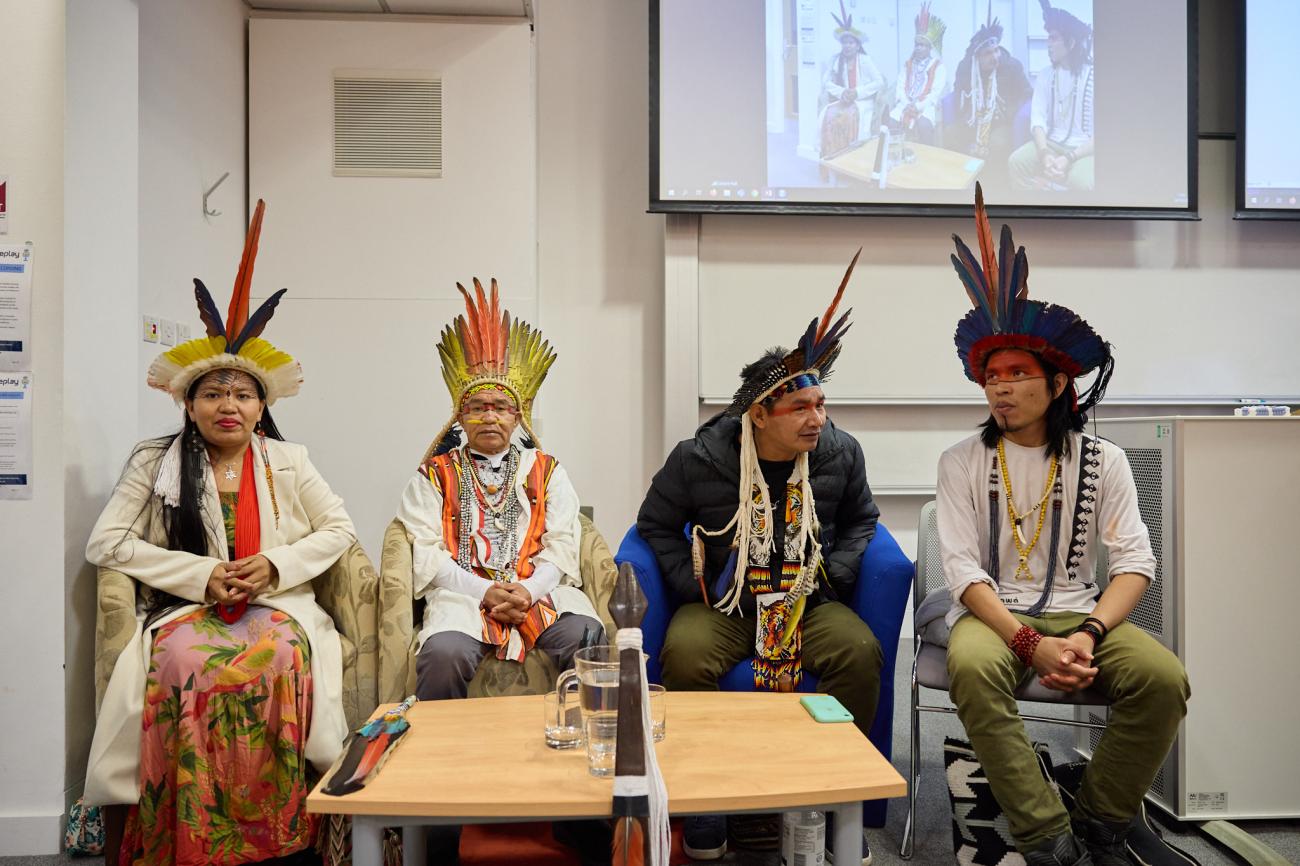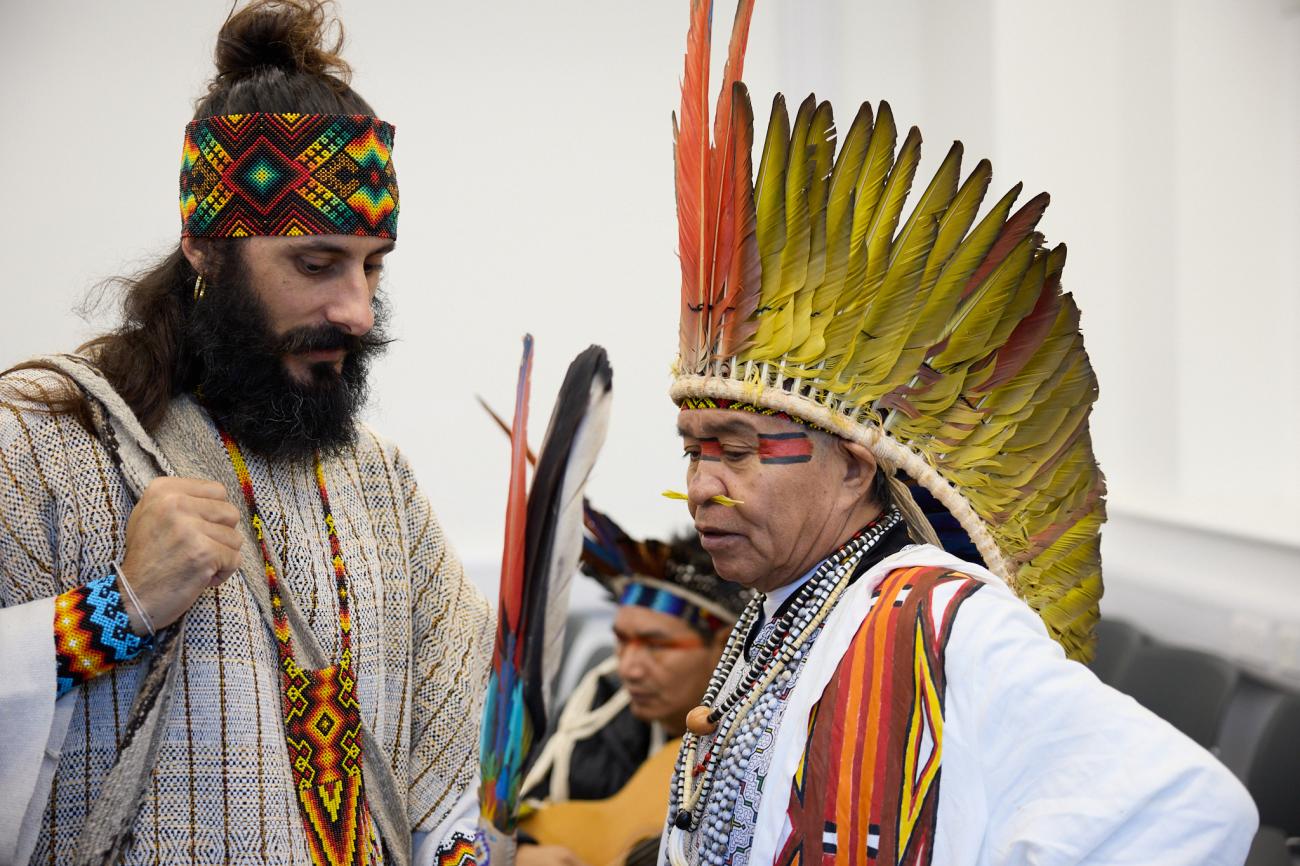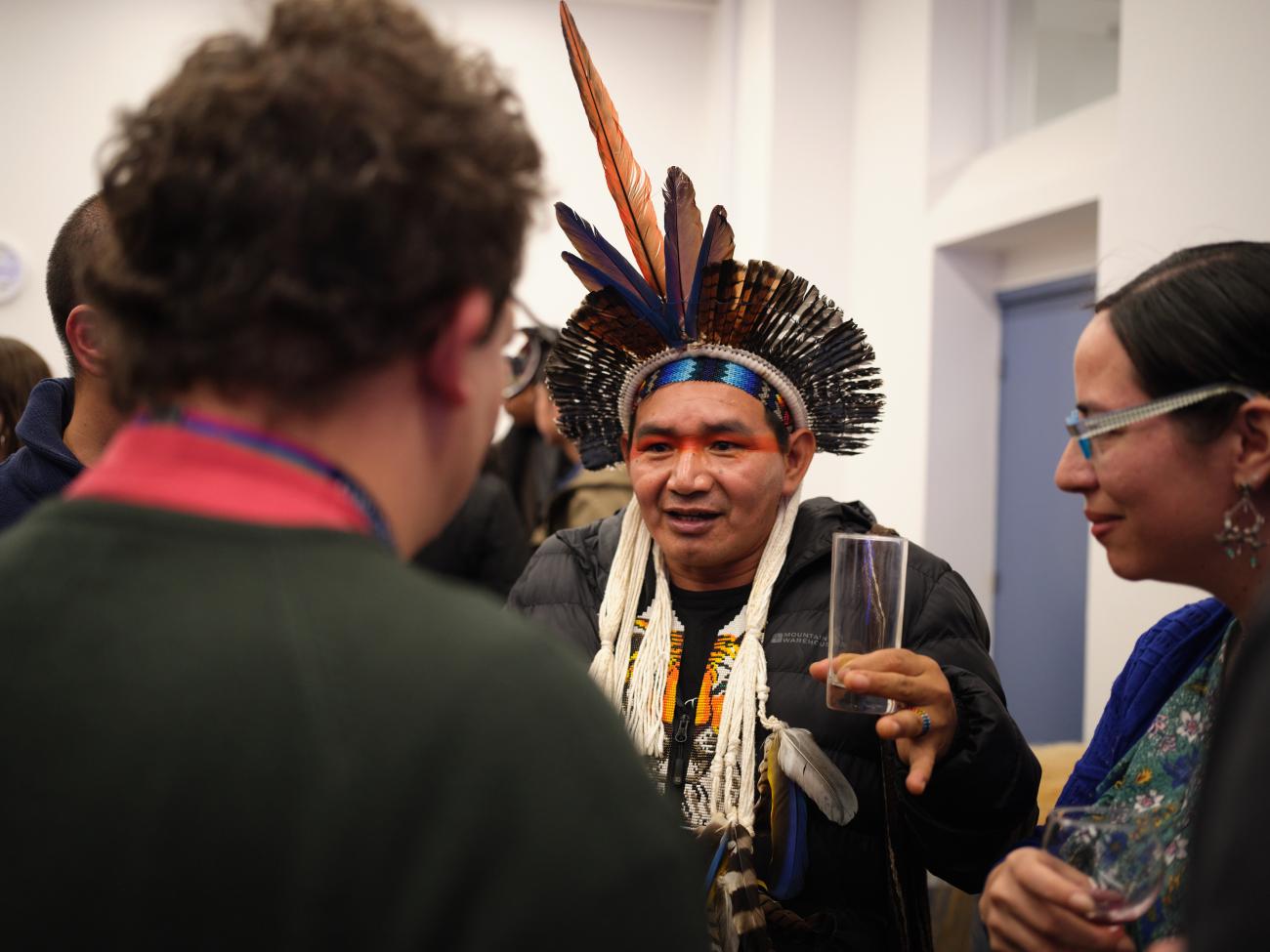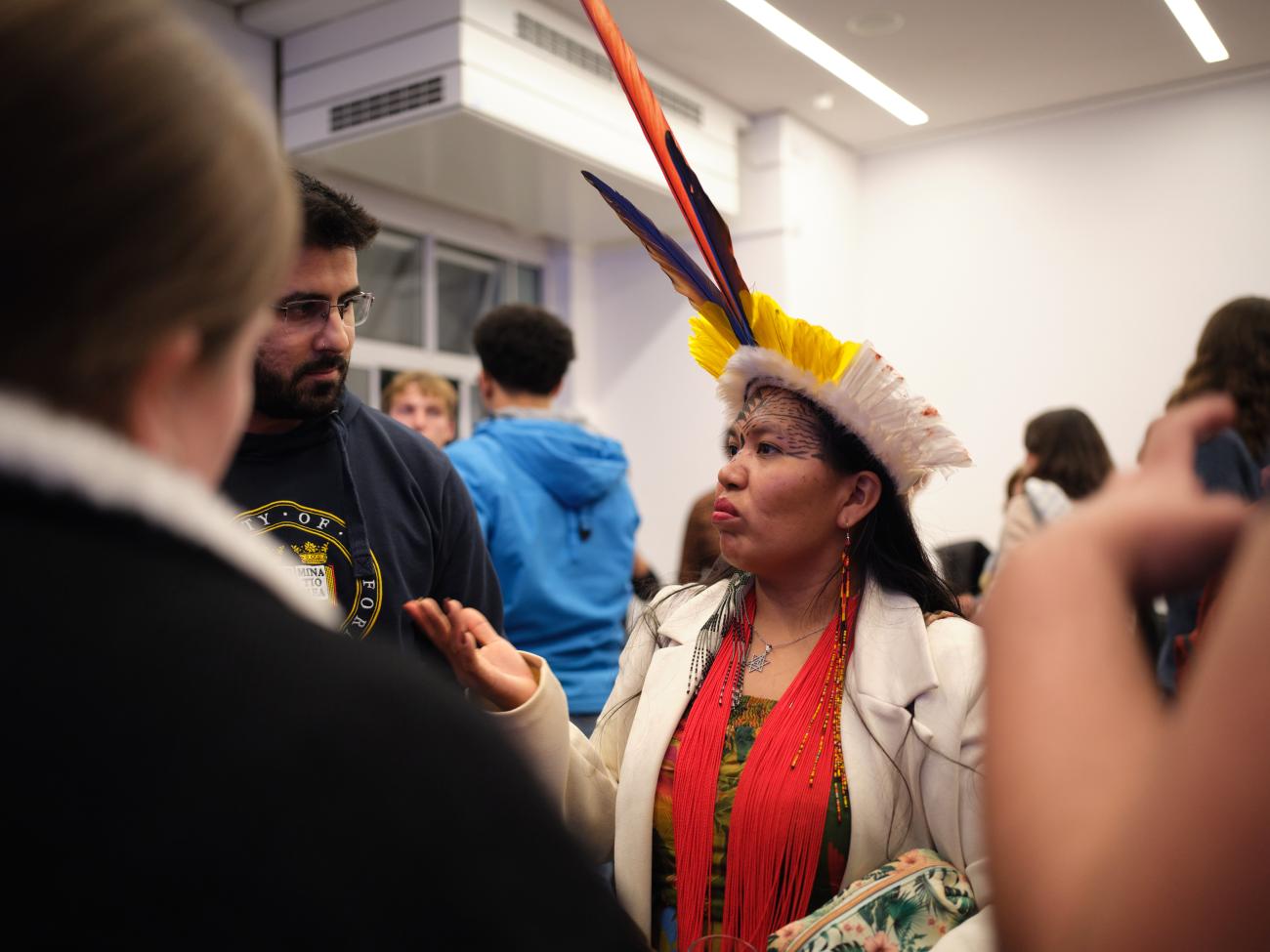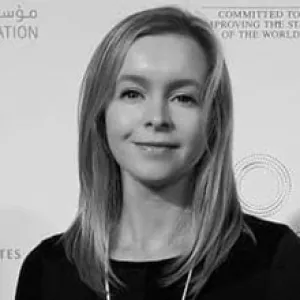There's a lot we can learn from indigenous people when we work collaboratively and equitably, particularly when it comes to connecting with nature and how to do better science. We had the privilege of a special Seminar with the indigenous Yawanawá of the Brazilian Amazon Rainforest, who shared many key socio-ecological perspectives on our interlinked world.
Four members of the tribe spoke, through interpreters, to a full capacity audience at the School of Geography and the Environment this week. They shared how traditional practices are directly related to the preservation of their culture and how those practices are inseparable from the right to the territory, their relationship with nature, their sacred knowledge and how these can work alongside Western research and science, each respecting the other.
The event was organised by Dr Aoife Bennett, Departmental Research Lecturer in Environmental Social Science at the ECI, who has been studying the Amazon for ten years, and lived there for four years getting to know local and indigenous people and the complex socio-ecological landscape on which they live.
Dr Bennett said: "Through this visit we hope to demonstrate how Indigenous practices can help to relocate human beings in larger socio-ecological environments, highlighting the ecological value behind these knowledges and cultures. We wanted to hear how the Yawanawá suggest we can work together better, with mutual respect towards a more complete intercultural scientific approach in our quest to solving common local and global problems.”
After their talk the Yawanawá sold traditional handicrafts, the proceeds of which will help support their community goals, including a school to keep socio-ecological knowledge alive, as fewer and fewer indigenous elders remain.
Find out more about the Yawanawá: www.ikixara.com
